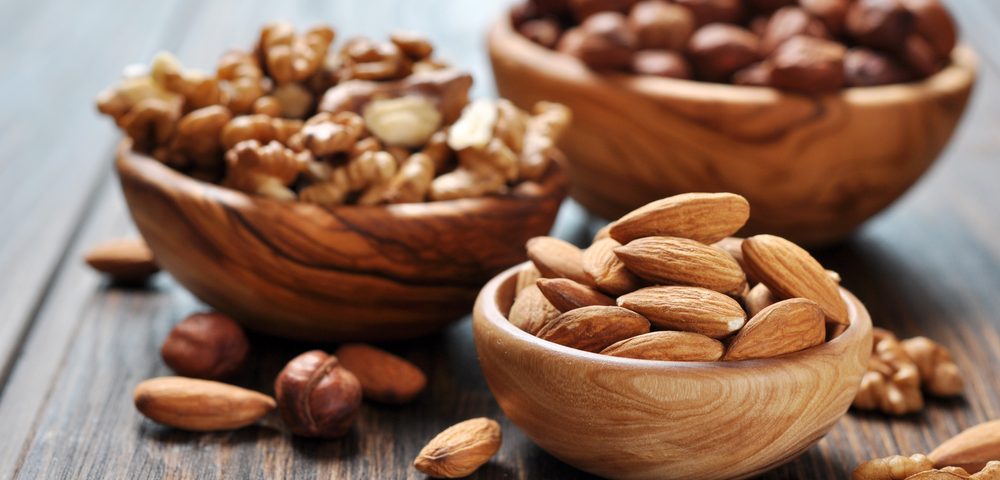People who consume nuts every day may be less likely to develop colon cancer, findings from a recent German study suggest.
The team has found that nuts — including almonds, hazelnuts, macadamia nuts, pistachios and walnuts — can all inhibit the growth of colon cancer cells in the lab and induce cancer cell death, suggesting that nuts or their metabolites have chemopreventive effects.
The study, “Chemopreventive potential of in vitro fermented nuts in LT97 colon adenoma and primary epithelial colon cells,” appeared in Molecular Carcinogenesis.
“For a long time now we have known that nuts are full of substances that are good for the heart and the cardiovascular system, or that protect against becoming overweight or developing diabetes,” Dr. Wiebke Schlörmann of Friedrich Schiller University Jena’s Department of Nutritional Toxicology said in a press release.
Several studies have also suggested that consumption of nuts as part of a health diet reduces the risk of developing colon cancer. “What we have not known in detail up to now is what this protective effect of nuts is based on,” added Schlörmann.
To address that, the researchers examined the effects of those five different types: hazelnuts, macadamia nuts, walnuts, almonds, and pistachios. The nuts were digested artificially with saliva and intestinal enzymes, and the digestion products were placed on top of colon cancer cells grown in the lab.
Results revealed that nuts have a protective effect on health because they induce the expression of enzymes involved in the inactivation of oxygen reactive species. These compounds, which result from UV radiation, chemicals or food metabolites, can damage DNA molecules and lead to cancer development.
“The body has a whole series of protective mechanisms that render reactive oxygen species harmless,” Schlörmann said. Nuts, and the metabolites they contain, can stimulate such mechanisms.
The researchers also found that the digested nuts may inhibit the growth of colon cancer cell lines and increase the number of cells entering cell death.
“We were able to show this effect is mediated by all the types of nuts studied,” said the study’s lead author, Michael Glei. Given that people usually eat nuts in roasted form, Glei and his team are now trying to unravel whether roasting the nuts reduces their protective effects.


